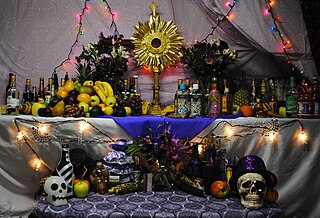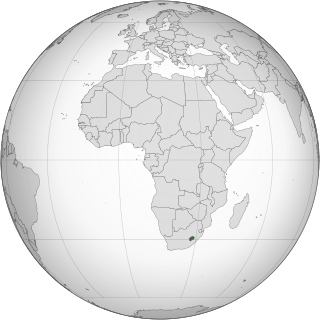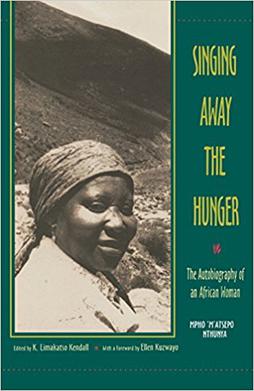
A lesbian is a homosexual woman or girl. The word is also used for women in relation to their sexual identity or sexual behavior, regardless of sexual orientation, or as an adjective to characterize or associate nouns with female homosexuality or same-sex attraction. The concept of "lesbian" to differentiate women with a shared sexual orientation evolved in the 20th century. Throughout history, women have not had the same freedom or independence as men to pursue homosexual relationships, but neither have they met the same harsh punishment as gay men in some societies. Instead, lesbian relationships have often been regarded as harmless, unless a participant attempts to assert privileges traditionally enjoyed by men. As a result, little in history was documented to give an accurate description of how female homosexuality was expressed. When early sexologists in the late 19th century began to categorize and describe homosexual behavior, hampered by a lack of knowledge about homosexuality or women's sexuality, they distinguished lesbians as women who did not adhere to female gender roles. They classified them as mentally ill—a designation which has been reversed since the late 20th century in the global scientific community.
Heterosexism is a system of attitudes, bias, and discrimination in favor of heterosexuality and heterosexual relationships. According to Elizabeth Cramer, it can include the belief that all people are or should be heterosexual and that heterosexual relationships are the only norm and therefore superior.
SothoSesotho, also known as Southern Sotho or Sesotho sa Borwa is a Southern Bantu language of the Sotho–Tswana ("S.30") group, spoken in Lesotho, and South Africa where it is an official language;

The Sotho, also known as the Basotho, are a prominent Sotho-Tswana ethnic group native to Southern Africa. They primarily inhabit the regions of Lesotho and South Africa.

LGBT history dates back to the first recorded instances of same-sex love and sexuality of ancient civilizations, involving the history of lesbian, gay, bisexual, and transgender (LGBT) peoples and cultures around the world. What survives after many centuries of persecution—resulting in shame, suppression, and secrecy—has only in more recent decades been pursued and interwoven into more mainstream historical narratives.

Lesbian erotica deals with depictions in the visual arts of lesbianism, which is the expression of female-on-female sexuality. Lesbianism has been a theme in erotic art since at least the time of ancient Rome, and many regard depictions of lesbianism to be erotic.

Homosexuality in Haitian Vodou is religiously acceptable and homosexuals are allowed to participate in all religious activities. However, in West African countries with major conservative Christian and Islamic views on LGBTQ people, the attitudes towards them may be less tolerant if not openly hostile and these influences are reflected in African diaspora religions following Atlantic slave trade which includes Haitian Vodou.
Lesbian bed death is the concept that lesbian couples in committed relationships have less sex than any other type of couple the longer the relationship lasts, and generally experience less sexual intimacy as a consequence. It may also be defined as a drop-off in sexual activity two years into a long-term lesbian relationship.

LGBT stereotypes are stereotypes about lesbian, gay, bisexual and transgender (LGBT) people are based on their sexual orientations, gender identities, or gender expressions. Stereotypical perceptions may be acquired through interactions with parents, teachers, peers and mass media, or, more generally, through a lack of firsthand familiarity, resulting in an increased reliance on generalizations.

Homosexuality is a sexual attraction, romantic attraction, or sexual behavior between members of the same sex or gender. As a sexual orientation, homosexuality is "an enduring pattern of emotional, romantic, and/or sexual attractions" exclusively to people of the same sex or gender. It "also refers to a person's sense of identity based on those attractions, related behaviors, and membership in a community of others who share those attractions."

Lesbophobia comprises various forms of prejudice and negativity towards lesbians as individuals, as couples, as a social group, or lesbianism in general. Based on the categories of sex, sexual orientation, identity, and gender expression, this negativity encompasses prejudice, discrimination, hatred, and abuse; with attitudes and feelings ranging from disdain to hostility. Lesbophobia is misogyny that intersects with homophobia, and vice versa. It is analogous to gayphobia.
Cheryl L. Clarke is an American lesbian poet, essayist, educator and a Black feminist community activist who continues to dedicate her life to the recognition and advancement of Black and Queer people. Her scholarship focuses on African-American women's literature, black lesbian feminism, and the Black Arts Movement in the United States. For over 40 years, Cheryl Clarke worked at Rutgers, the State University of New Jersey, and maintains a teaching affiliation with the Graduate Faculty of the Department of Women and Gender Studies, though retired. In addition, Clarke serves on the board of the Newark Pride Alliance. She currently lives in Hobart, New York, the Book Village of the Catskills, after having spent much of her life in New Jersey. With her life partner, Barbara Balliet, she is co-owner of Bleinheim Hill Books, a new, used, and rare bookstore in Hobart. Actively involved in her community, Clarke along with her sister Breena Clarke, a novelist, organizes the Hobart Festival of Women Writers each September

Lesbian, gay, bisexual, and transgender (LGBT) people in Lesotho face legal challenges not experienced by non-LGBT residents. Lesotho does not recognise same-sex marriages or civil unions, nor does it ban discrimination on the basis of sexual orientation or gender identity.

Compulsory heterosexuality, often shortened to comphet, is the theory that heterosexuality is assumed and enforced upon people by a patriarchal and heteronormative society. The term was popularized by Adrienne Rich in her 1980 essay titled "Compulsory Heterosexuality and Lesbian Existence". According to Rich, social science and literature perpetuate the societal belief that women in every culture are believed to have an innate preference for romantic and sexual relationships with men. She argues that women's sexuality towards men is not always natural but is societally ingrained and scripted into women. Comphet creates the belief that society is overwhelmingly heterosexual and delegitimizes queer identities. As a result, it perpetuates homophobia and legal inequity for the LGBTQ+ community.
Feminist views on sexuality widely vary. Many feminists, particularly radical feminists, are highly critical of what they see as sexual objectification and sexual exploitation in the media and society. Radical feminists are often opposed to the sex industry, including opposition to prostitution and pornography. Other feminists define themselves as sex-positive feminists and believe that a wide variety of expressions of female sexuality can be empowering to women when they are freely chosen. Some feminists support efforts to reform the sex industry to become less sexist, such as the feminist pornography movement.
Domestic violence within lesbian relationships is the pattern of violent and coercive behavior in a female same-sex relationship wherein a lesbian or other non-heterosexual woman seeks to control the thoughts, beliefs, or conduct of her female intimate partner. In the case of multiple forms of domestic partner abuse, it is also referred to as lesbian battering.

The following outline offers an overview and guide to LGBT topics.

Singing Away the Hunger: The Autobiography of an African Woman is a 1996 autobiography by Mosotho woman Mpho 'M'atsepo Nthunya, edited by K. Limakatso Kendall.
Lesotho does not recognise same-sex marriages or civil unions.
Botswana does not recognize same-sex marriages or civil unions. The Marriage Act does not recognise same-sex marriage.










